Nearly 500 years ago, the young monk Martin Luther nailed his 95 Theses to a church door in Wittenberg, Germany, and kicked off the movement that would become the Protestant Reformation. The theological disputes that followed have been well-documented over the centuries, but what the Reformation meant for the church’s witness in the midst of hunger and poverty is often forgotten. In this series leading up to October 31, 2017, we will take a deeper look at the Reformation’s importance for the church’s social ministry – and the important work to which people of faith are called by the gospel.
Each day, we’ll look at a different quote, counting down to the 500th Anniversary. This week, we start with a familiar but pithy gem from Martin Luther’s Small Catechism.
#10 – “I believe that God has made me and all creatures; that He has given me my body and soul, eyes, ears, and all my members, my reason and all my senses, and still takes care of them. He also gives me clothing and shoes, food and drink, house and home, wife and children, land, animals, and all I have. He richly and daily provides me with all that I need to support this body and life.”
This affirmation comes to us from Luther’s explanation of the First Article of the Apostle’s Creed: “I believe in God the Father Almighty, Maker of heaven and earth.” The aptly named Small and Large Catechisms were written by Luther as guides for teaching Christians about certain aspects of their faith. Luther saw a great deal of confusion about the Creed, the Lord’s Prayer, and the Commandments, especially as more folks moved away from Roman Catholicism. He published the catechisms to help them understand some of the basic contours of this emerging Protestant faith. The writings in them were so popular and well-accepted that they eventually became part of the Book of Concord, the traditional authoritative text for Lutherans.
The catechisms are meant to be informative for preachers, pastors, and laypeople, and were used both in formal education and in homes. Each commandment and article of the Lord’s Prayer and the Creed are explained by Luther with allusions to scripture and to real-life situations.
In this explanation of the First Article of the creed, Luther lays out a basic tenet of faith: all good things come from God. Unlike some earlier forms of Christianity that believed the material world was evil, or that being holy meant separating oneself from daily life, Luther believed that all creation testified to God’s grace and God’s intention for our well-being. The life of faith is not a life lived separate from the world but rather was lived immersed in the world, enjoying the fruits of God’s creation and working to ensure that others can enjoy them, as well.
What Does This Mean?
For Luther, food, clothing, shelter, family, and all that we have are gifts of God. Thus, the first lesson to be drawn from this is our dependence on God for our well-being. This factors into Luther’s teachings in other places, particularly when it comes to our behavior in an economic community. Rather than treat our possessions as solely our own or principally as the fruit of our own labors, Christians are called to see all that we have as gifts from a loving God—and to use them as such.
This places some radical limits on how we use our possessions. The sort of greedy acquisitiveness that can cause us to act selfishly or to “boast” in our own wealth, for Luther, is a denial of our dependence on God. Drawing on Christian thought that stretches back at least to Clement of Alexandria in the 2nd Century (and probably much further!), Luther believed that we hold our possessions as stewards and not as full owners. This lays the groundwork for his later claims that Christians are duty-bound to share their goods with others in need.
This also points to a key nuance in Lutheran theology. Just because these things are gifts from God does not mean that those who lack food, clothing, shelter, or family are not blessed by God’s grace. Unlike the popular prosperity gospel preachers today, who teach that God rewards good people with wealth, Luther believed that these gifts are given indiscriminately. Inequity, if it exists, is not part of God’s “plan,” but rather evidence of failed stewardship by humans. Poverty, then, may be a sign of the sin of poor stewardship, rather than a punishment of God.
The other lesson this portion of the Catechism teaches is the expansive role of grace in our world. For Luther, the world is not formed in scarcity. People of faith don’t start from the premise of what the world lacks—though faith also means being honest about the deep need around us. Instead, faith begins from the notion that God has gifted the world abundantly, that grace is in evidence all around us as the foundational principle of existence. It’s grace, all the way down.
So what?
When it comes to the church’s ministries among people in poverty and hunger, there is much to lean on here. First, part of what it means to be human is to recognize our dependence. This balances claims to self-sufficiency. None of us is fully independent or self-sufficient. At the root, we are all dependent on God.
Second, people of faith are called to be good stewards and to remember from whom their possessions came. Ultimately, the food we eat, the clothes we wear and the comforts we enjoy are not products of our own doing, but rather gifts from God. This helps us put our stewardship of our material resources and of our personal relationships in a different light. How do I use my possessions differently, if I recognize them as God’s? How do I tend my personal relationships differently, if I see each of them as a gift from God?
Lastly, Luther reminds us that the basic fact of all existence is grace. We live by grace, are sustained by grace, and are saved by grace. This means that beginning with abundance – looking for those places where grace may reveal itself – is an important way to witness to our faith. It’s easy in the midst of hunger to focus on need or lack. The harder and more important step, though, is to recall continually the great gifts with which God has endowed every community. This includes the gifts of “reason and the senses,” those mental and emotional faculties that help us discern solutions to seemingly intractable problems. Faith in “God the father almighty, maker of heaven and earth” is a faith that calls us to look for the assets our community can bring to the table, even as we are honest about our needs.

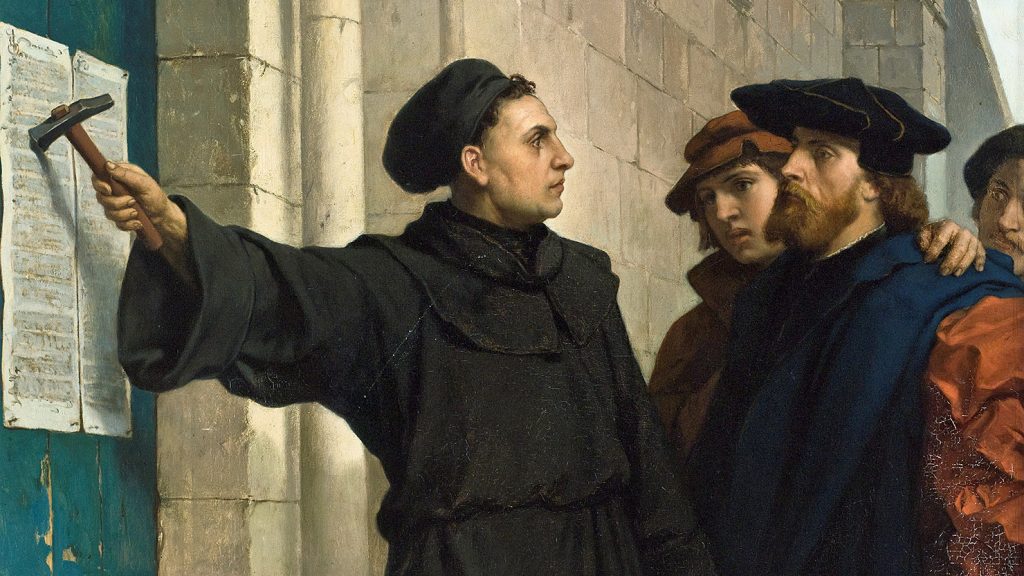


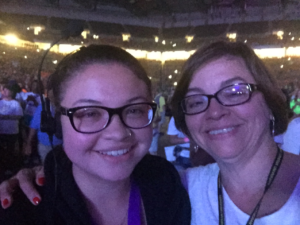
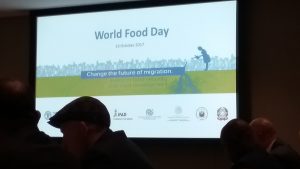
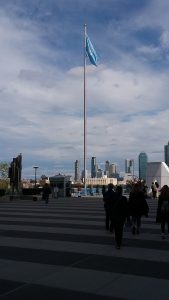

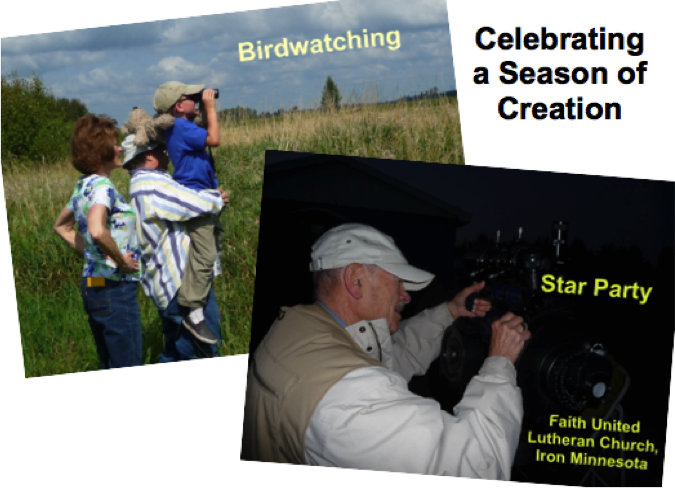 A good place to begin planning a Season of Creation is with a 4-, 5-, or 6-week series of lectionary readings—there are a variety of 3-year lectionaries to choose from. The period from September 1 (the beginning of “Creation Time” in the Eastern Orthodox tradition) to October 4 (the Feast of St. Francis in the Roman Catholic (western) tradition) has become the ecumenical standard for introducing a Season of Creation into the church year. Local conditions, however, may indicate a better timeframe, or a congregation might select individual Sundays throughout the year. Themes on Sundays during creation time draw worshipers’ attention to various domains or aspects of creation (e.g., planet earth, wilderness, humanity, river, and world communion). At New Salem we have also added in an “Advocacy Sunday” each year to amplify particular callings for eco-justice (e.g., Fire/Energy Stewardship, Food/Water Security, and Sustainability).
A good place to begin planning a Season of Creation is with a 4-, 5-, or 6-week series of lectionary readings—there are a variety of 3-year lectionaries to choose from. The period from September 1 (the beginning of “Creation Time” in the Eastern Orthodox tradition) to October 4 (the Feast of St. Francis in the Roman Catholic (western) tradition) has become the ecumenical standard for introducing a Season of Creation into the church year. Local conditions, however, may indicate a better timeframe, or a congregation might select individual Sundays throughout the year. Themes on Sundays during creation time draw worshipers’ attention to various domains or aspects of creation (e.g., planet earth, wilderness, humanity, river, and world communion). At New Salem we have also added in an “Advocacy Sunday” each year to amplify particular callings for eco-justice (e.g., Fire/Energy Stewardship, Food/Water Security, and Sustainability).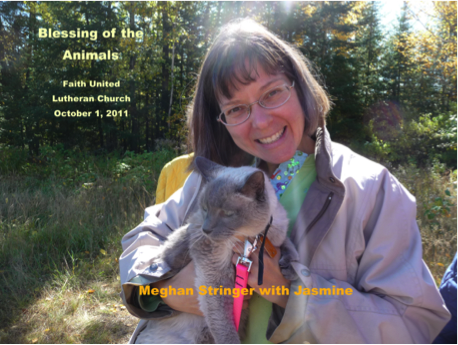
 Season of Creation Art Gallery that by the end of the season had photos, paintings, sculpture, fiber arts, and mixed-media on display. Special guests were often invited to preach or give a presentation after worship on various themes; opportunities were promoted for learning more about community supported agriculture, local recycling programs, political lobbying efforts, bird watching, prayer hikes, and so much more.
Season of Creation Art Gallery that by the end of the season had photos, paintings, sculpture, fiber arts, and mixed-media on display. Special guests were often invited to preach or give a presentation after worship on various themes; opportunities were promoted for learning more about community supported agriculture, local recycling programs, political lobbying efforts, bird watching, prayer hikes, and so much more.